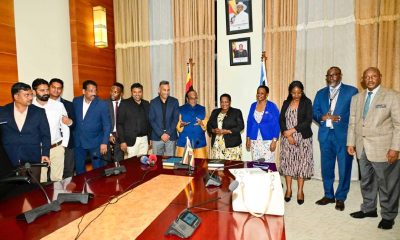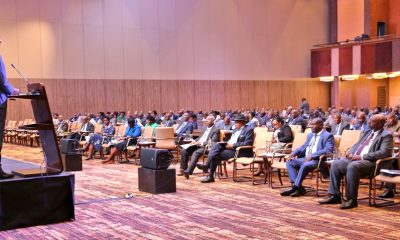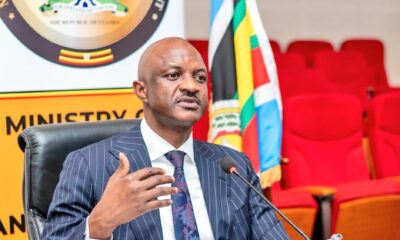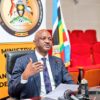Ramathan Ggoobi
The legacy of the 27: The passing of Kategeya should offer a rude awakening to our bush-war heroes!
On June 2, 2005, the Woodrow Wilson International Center for Scholars and the Center for Strategic and International Studies, hosted a conference in Washington, D.C. entitled, “Uganda: An African ‘Success’ Past Its Prime?”
At the time, the focus and debate was on Uganda following the announcement by NRM government that it was going to remove the two term limits from the 1995 Constitution to enable you, Mr. President, extend your stay.
The main discussants were two men who had witnessed, the building of the “new Uganda” beginning in 1996. One of them is Ambassador Johnnie Carson, former U.S. Ambassador to Uganda between 1991 and 1994, and at the time of aforementioned conference, working as the Principal Deputy Assistant Secretary of State for African Affairs. He presented a paper entitled, “A Legacy in Danger.”
Carson wondered what type of legacy you, Mr President, wanted to leave behind for yourself and for Uganda. One where economic growth, democratic progress and political stability prevailed? Or, a nation that was faced with a new round of destabilising political challenges?
“If President Museveni succeeds in altering his country’s constitution, and remains in office, it could spark a political unrest among the opposition, a slowdown in the economy, and a loss of confidence on the part of donors,” Carson predicted.
Eight years later, the results are out: Uganda has increasingly become a “police State”; the economy’s growth rate has reduced to 3.2% per annum from the Chinese growth rates of over 8% it was enjoying prior to the changing of the constitution; and donor funding has shrunk to levels where government can no longer pay wages of civil servants on time!
Africa’s ‘Other Statesman’?
The other discussant was Dr. Joel Barkan, a professor of political science at the University of Iowa, specialising in the politics of East Africa. He had also worked here as the East African Regional Democracy and Governance advisor for USAID from 1992 to 1994, and as a consultant with the World Bank. So he witnessed the nascent years of NRM. His own paper was entitled, “An African Success Past its Prime.”
In his paper, Barkan said, “After an extended period of political liberalisation which resulted in the strengthening of parliament, the judiciary, watchdog agencies such as the Inspector General of Government and a free media, Uganda has slipped back into a period of neo-patrimonial, or ‘big man’ rule.”
During the aforementioned conference which the international community organised to cast a vote of no confidence in your leadership, ICT Minister Dr. Ruhakana Rugunda, then Minister of Internal Affairs, traveled to Washington D.C. and put up a spirited, vigorous defence on your behalf, and it goes without saying that he did a great job under the circumstances.
Mr. President, despite all these pressures, you went ahead and ‘defiled’ the 1995 constitution, setting yourself on the path to self-destruction, self-mortification and outright destruction of a legacy you had worked so hard, and for so long to build.
In 1997 the New York Times wrote an article, illustrative of the high esteem in which you, Mr. President, were being held then. The article stated in part, “These are heady days for the former guerilla who runs Uganda. He moves with the measured gait and sure gestures of a leader secure in his power and his vision. It is little wonder to hear some of the diplomats and African experts tell it, President Yoweri K.
Museveni started an ideological movement that is reshaping much of Africa, spelling the end of the corrupt, strong-man governments that characterized the cold-war era. These days, political pundits across the continent are calling Mr. Museveni an African Bismarck. Some people now refer to him as Africa’s ‘other statesman,’ second only to the venerated South African President, Nelson Mandela.”
Mr. President, whenever we read such statements and also remember what you have done for this country, the region, and Africa as a whole, and then hear what is being said about you lately, we cannot help asking ourselves; “What type of legacy does Mr. Museveni want to leave?”
A Legacy in Danger!
Even your fiercest opponent will agree that few men, in the closing years of the 20th Century, had attempted to forge a lasting solution to many of Africa’s problems. On the political front, you nearly delivered Uganda to the ‘Promised Land’ through your idea of “broad-based government”. The ‘Movement’ soothed the tribal and religious tensions in this country. There are few places in Africa where people will accept to vote a person into a position of leadership in a province or village where that person cannot point voters to the graveyard of his/her ancestors. Countless of such leaders are now in this country.
On security and stability, your arrival in 1986 brought meaning back to life. You ended extra-judicial killings by State agencies. You went ahead and fought and defeated all insurgencies that had turned Uganda into a pariah nation. You did not stop there; you also engaged almost all your enemies and opponents into dialogue or peace-talks, co-opting many into your government. Then, you went regional and embarked on a dual process of conflict resolution and/or military engagement of various warring groups, in various countries around us. In the process you played a key role in the liberation of Rwanda, Burundi, South Sudan, DRC, Somalia, South Africa, Liberia, and Sierra leone.
On the economic front, you not only reformed our then badly battered economy, but you also spearheaded the restoration of fiscal discipline. Between 1992 and 1997 you ordered for a reduction of the government ministries from thirty-eight to twenty-two to save the taxpayers’ money and eliminate duplications. You also ordered and keenly monitored the reduction of public servants from 320,000 on the payroll to nearly half during the same period. You told the Civil Service Reform Commission in 1994 thus, “What is needed is a better reformed government and not a bigger government.”
In those good old days, you rarely quoted percentage GDP statistics to refer to the successes of your government. Instead, you used to refer more to absolute number of Ugandans who accessed clean and safe drinking water, those who accessed healthcare services in government facilities, as well as those who afforded a decent meal, clothing, and housing.
The Museveni Ugandans are likely to remember!
Unfortunately, this is not how you will be remembered. It is William Shakespeare who said, “The evil that men do lives after them; The good is oft interred with their bones.” The wisdom from this is that man should avoid committing evil. But as we all know, to err is human; so to avoid evil we should make ourselves get out of situations that would inevitably make us err as quickly as it is optimal.
Mr. President, since you chose to hold onto a position that makes you vulnerable to committing evil, your legacy will be shaped by the unpalatable events quite recent in your long tenure. Ugandans will remember you as a president who compromised everything he and his colleagues had fought for to keep himself in power. We shall forever remember the massive corruption and outright theft of public funds that has occurred and continue to occur under your watch. We shall definitely remember the fiscal indiscipline created when you decided to slice our country into superfluous districts, ministers, and parliamentary constituencies, all in the name of creating patronage to retain power.
Mr. President, it’s you who have always faulted your predecessors and political opponents for being liars, dishonest, opportunists and undependable. Again it’s William Shakespeare who said, “No legacy is so rich as honesty.” I will leave this one to you to judge; how you are likely to be remembered as far as four critical virtues — honesty, trust, altruism, and a sense of shame — are concerned.
What I will not leave for you to judge is whether the passing of your childhood friend, Eria Kategeya (RIP) holds lessons for you and other leaders with whom you picked up guns 31 years to liberate this country. I read Hon. Amanya Mushega’s eulogy for the late Kategaya, published in print media and I could literally feel what was in the heart and soul of the author. The opening statement read, “Eriya Kategaya was a dependable comrade, colleague and a above all, a reliable and valuable friend to many of us.”
Come on Mushega’s other comrades, colleagues and friends. How are you faring on the scale of dependability, reliability, and honesty? Undoubtedly few would argue on what was said about Kategaya. What about you? Mr. President, how would you want to be remembered?
I know in Africa we discount the future so heavily, and in most cases we don’t want to think about legacy, after all it only becomes meaningful when we are long dead! But wait a minute; don’t we often hear you referring to legacies of others? Julius Nyerere; Shamolla Michelle; Kabalega etc. Yes, legacy matters! At times, more!
Comments


























